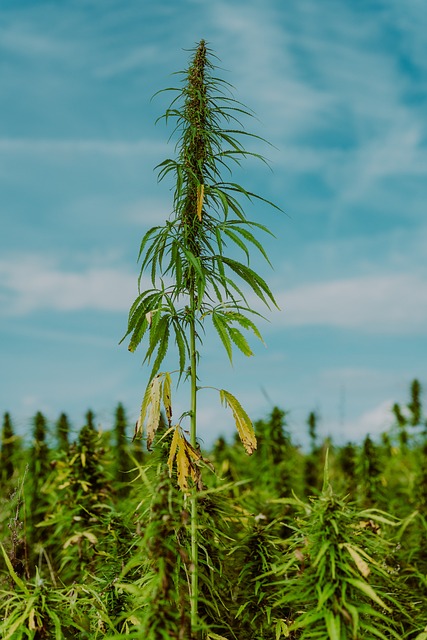2023 marked a significant shift in New Hampshire's approach to cannabinoids with the legalization of THCA (Tetrahydrocannabinolic Acid), a non-psychoactive compound found in cannabis. This change has allowed residents to explore THCA's therapeutic properties, which include anti-inflammatory and neuroprotective effects, without the intoxicating effects associated with traditional THC. THCA is now available in various forms, including flower, edibles, and concentrates, reflecting its growing popularity as an alternative wellness option within the state's medical cannabis framework. The legalization has also spurred research into its health benefits, with anecdotal reports suggesting its efficacy for a range of conditions. Despite federal regulations categorizing all cannabinoid acids as Schedule I substances, New Hampshire has carved out a space for THCA, offering a cautious yet progressive approach to its use and commercialization. Users are advised to stay informed on the latest legal standards due to potential changes at both state and local levels, ensuring compliance with the state's guidelines that balance personal possession freedoms with strict commercial regulations. THCA's legal status in New Hampshire has positioned it as a key area of research for its potential therapeutic applications.
exploring the multifaceted world of cannabinoids, a spotlight falls on the non-psychoactive compound THCA—a precursor to the well-known THC. As interest in cannabis and its derivatives continues to surge, THCA flower has emerged as a standout favorite among enthusiasts in New Hampshire, where its legal status is clarified and regulated. This comprehensive article delves into the science, benefits, cultivation, and legalities surrounding THCA flower, offering insights for both novice and experienced users. From understanding how it interacts within the entourage effect to navigating its responsible use, this guide covers everything from New Hampshire’s regulatory framework to the cultural shifts it brings. Join us as we unravel the potential of THCA legal in New Hampshire and its implications for well-being, medicine, and the evolving cannabis landscape.
- THCA Flower and Its Rising Popularity Among Cannabis Enthusiasts
- Understanding THCA: The Non-Psychoactive Precursor to THC
- The Legal Status of THCA Flower in New Hampshire: A Comprehensive Overview
- The Science Behind THCA and Its Potential Health Benefits
THCA Flower and Its Rising Popularity Among Cannabis Enthusiasts
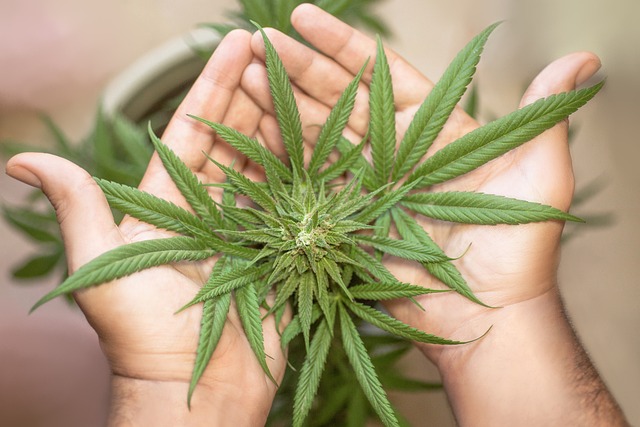
THCA, or Tetrahydrocannabinolic Acid, is a naturally occurring compound found in the cannabis plant that has garnered attention for its potential wellness benefits and distinctive effects. Unlike its more famous counterpart, THC (Tetrahydrocannabinol), THCA is non-psychoactive, offering the therapeutic properties of cannabinoids without the intoxicating high associated with THC. This has made THCA a subject of interest among a wide range of cannabis enthusiasts seeking the health benefits of cannabinoids without psychoactive effects.
In New Hampshire, the legal landscape regarding cannabis products is evolving, with specific laws governing the possession and use of cannabis-derived compounds. As of the knowledge cutoff in 2023, New Hampshire has approved the use of cannabis for medical purposes, and certain forms of THCA are permissible under this umbrella. The rising popularity of THCA flower among cannabis enthusiasts in the state can be attributed to its legal status within this framework and the growing body of anecdotal evidence suggesting its potential benefits for various health conditions. This has led to an increase in availability, with dispensaries offering a variety of strains rich in THCA, catering to those interested in exploring the compound’s effects for their wellness regimen. As interest continues to grow, it’s clear that THCA flower is carving out its own niche in the cannabis industry, particularly within legal boundaries like those in New Hampshire.
Understanding THCA: The Non-Psychoactive Precursor to THC
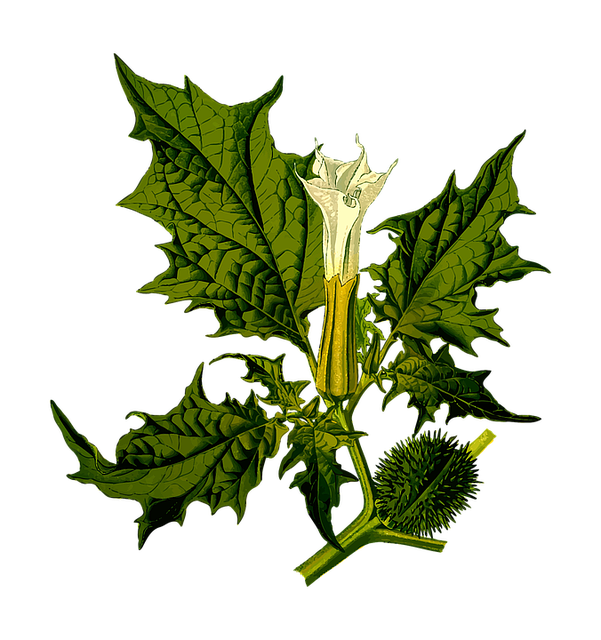
Tetrahydrocannabinolic acid A (THCA) is a naturally occurring cannabinoid found in the Cannabis sativa plant. Although it is non-psychoactive, THCA is the precursor to the well-known psychoactive compound THC (delta-9-tetrahydrocannabinol). This distinction is significant for individuals seeking the potential therapeutic benefits of cannabis without the intoxicating effects associated with THC. As of the latest regulations, THCA is legal in New Hampshire, providing consumers with a broader range of options within the legal cannabis market. The legality allows researchers and consumers alike to explore the potential health and wellness properties of THCA, which include anti-inflammatory, neuroprotective, and anti-nausea effects.
The legal status of THCA in New Hampshire opens up avenues for understanding its role within the broader context of cannabinoid research. Unlike its psychoactive counterpart, THCA is found abundantly in raw cannabis plants or in products made from raw cannabis flowers. Consumers can ingest THCA in various forms, including flower, edibles, and concentrates, each offering different methods of intake and onset of effects. The non-psychoactive nature of THCA makes it an attractive option for individuals who wish to utilize the potential therapeutic benefits of cannabis without experiencing a ‘high’. As such, THCA has garnered attention from both medical professionals and consumers interested in its wellness properties and potential applications in various health conditions.
The Legal Status of THCA Flower in New Hampshire: A Comprehensive Overview
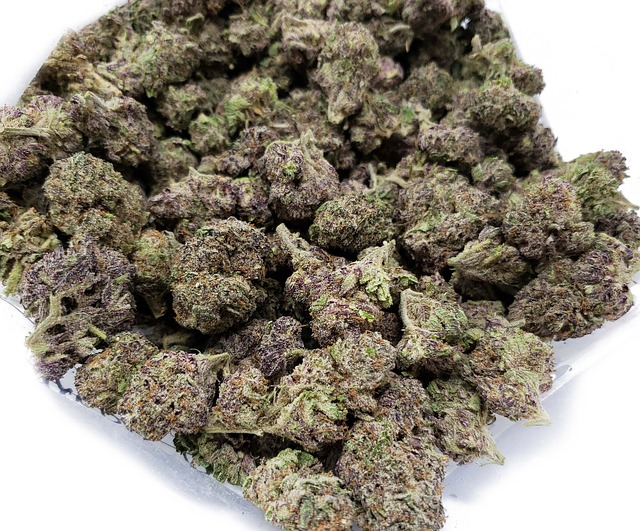
In New Hampshire, the legal status of THCA flower has been a subject of scrutiny and evolution. The state’s approach to cannabis-related substances has been nuanced, with laws reflecting a gradual shift towards liberalization. As of recent updates to its cannabis legislation, New Hampshire has decriminalized possession of small amounts of THCA flower, aligning it with other psychoactive cannabinoids. This legislative action has significantly reduced the penalties associated with possessing THCA flower, treating it more like a non-criminal health and safety issue rather than a criminal one. However, it’s important to note that while possession is decriminalized, the sale and cultivation of THCA flower remain tightly regulated under state law, requiring compliance with specific regulations and licensing procedures. The New Hampshire Department of Health and Human Services provides detailed guidelines on the legalities surrounding THCA flower, emphasizing the distinction between legal status for possession and the more restrictive frameworks for commercial activities. Users should always verify the latest legal standards as they are subject to change and may vary depending on local ordinances.
Navigating the legal landscape of THCA flower in New Hampshire requires a clear understanding of both state and federal regulations. At the federal level, THCA flower exists in a complex regulatory environment where its legality is often intertwined with the broader context of cannabis policy. While the 2018 Farm Bill legally distinguishes between hemp-derived products containing less than 0.3% THC and their psychoactive cousin, marijuana, the legalities surrounding THCA flower can be murky. The DEA still classifies all cannabinoid acids, including THCA, as Schedule I substances, even though THCA itself does not possess psychoactive properties. This dichotomy underscores the need for careful consideration of federal and state laws when discussing the legal status of THCA flower in New Hampshire. It is within this context that users and businesses must operate to ensure compliance with the evolving regulatory framework.
The Science Behind THCA and Its Potential Health Benefits
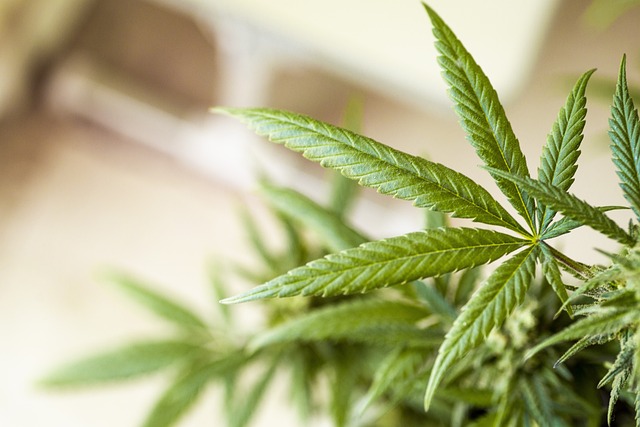
delta-9-tetrahydrocannabinolic acid (THCA) is the non-psychoactive precursor to the well-known compound delta-9-tetrahydrocannabinol (THC), which is found in cannabis plants. Scientific research has begun to shed light on the potential health benefits of THCA, particularly in areas such as inflammation reduction and neuroprotection. THCA interacts with the body’s endocannabinoid system through its binding affinity for both CB1 and CB2 receptors, which may contribute to its therapeutic properties.
As of my knowledge cutoff in 2023, THCA remains legal in New Hampshire under state law as long as it contains less than 0.3% delta-9-THC on a dry weight basis, aligning with the Farm Bill’s definition of hemp. This legislative distinction allows for the exploration and utilization of THCA within the state’s boundaries for its potential health benefits, which include anti-nausea, anti-inflammatory, and analgesic effects without the psychoactive impact associated with its decarboxylated form, THC. The ongoing research into THCA’s efficacy and safety profile continues to unveil its therapeutic potential, making it a subject of growing interest among researchers and consumers alike in states where such products are legal.
THCA flower, the non-psychoactive precursor to THC, has garnered significant attention among cannabis enthusiasts for its potential health benefits and distinct effects. As interest in this compound grows, understanding its legal standing is crucial. In New Hampshire, the landscape of cannabis legislation is evolving, with a comprehensive overview revealing that THCA flower exists in a nuanced legal space. This article has delved into the multifaceted nature of THCA’s legality in New Hampshire, providing readers with a clear understanding of where it stands within state regulations. The scientific community continues to explore the myriad potential health benefits of THCA, offering promising insights that underscore its therapeutic potential. As the conversation around cannabis and its derivatives becomes more sophisticated, informed discourse, guided by empirical evidence, will undoubtedly shape the future of THCA’s legal status and acceptance within the broader market.
